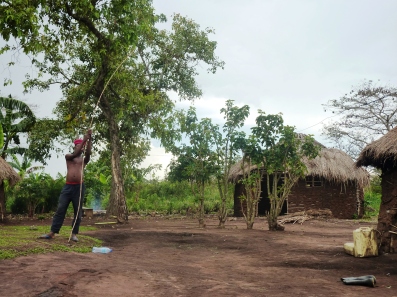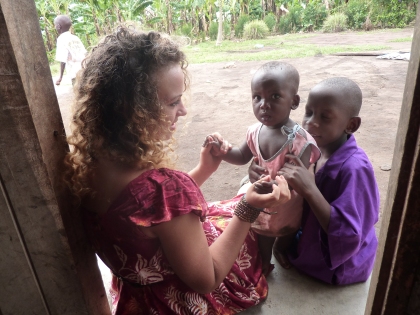One of the first things I noticed about Uganda is that it is a country extremely proud of its cultural heritage, customs and traditions. With a rich diversity of over fifty tribes and over forty languages spoken in a country just smaller than the size of the UK, I think that’s justified!  Each tribe has its own identity, customs and unwritten rules, so there is a lot to learn if you’re staying in the country for any length of time. Luckily Ugandans love to teach visitors about their way of life, and are rarely offended when you get something wrong or ask an awkward question! Kampala is part of the central region of Uganda, where the Baganda tribe originate, but being the capital city, it’s actually a melting pot for all tribes and cultures. Most people living in Kampala make the effort to learn Luganda, the language of the Baganda, however, as it’s very difficult to get by otherwise!
Each tribe has its own identity, customs and unwritten rules, so there is a lot to learn if you’re staying in the country for any length of time. Luckily Ugandans love to teach visitors about their way of life, and are rarely offended when you get something wrong or ask an awkward question! Kampala is part of the central region of Uganda, where the Baganda tribe originate, but being the capital city, it’s actually a melting pot for all tribes and cultures. Most people living in Kampala make the effort to learn Luganda, the language of the Baganda, however, as it’s very difficult to get by otherwise!
One weekend when my host mum, Madina, was going to the village, she invited me and Michaela along, the other volunteer I’ve been staying with here. We went with Madina’s husband, Mohamed, and the three eldest boys, to visit the family of one of Mohamed’s other wives who sadly died a few months ago during childbirth. Her little baby survived and is being taken care of by Mohamed’s sister, who also looks after the house while the older boys work the land.
It’s a hard existence, living miles from anywhere in a poorly constructed mud house, with the nearest water source a half hour bicycle ride away. Every day is the same routine and I felt sorry for the teenage boys who have had to accept that life for the time-being and the foreseeable future.

My extended host family’s home in the village
When we arrived it was almost dark but we had timed our visit with the full moon, so the whole place was dappled in a beautiful pale glow which was almost as bright as my wind-up torch! It’s part of their culture to kill a chicken for guests – usually they take the live chicken to the visitor to inspect before they kill it, but they spared us this privilege! – so while it was cooking I asked Mohamed if he would be offended if I didn’t eat it (as I’m trying hard to be a vegetarian in Uganda!) I knew Madina wouldn’t mind but it’s the men that hold all the power here and I didn’t want to get on the wrong side of her husband. Unfortunately, after at least half an hour of discussing the pros and cons of vegetarianism, Mohamed still couldn’t see my point of view, so I gave in and ate the chicken in the end (it actually tasted very good!)
The next morning we walked to the village church for the morning service, which turned out to be in their tribal language, Runyankole, so we didn’t understand a word of it but we loved the music, which used traditional drums and shakers. No one had any words of course, but everyone knew the songs and the liturgy off by heart.
We left the village in the afternoon and finally made it back to Kampala around 10pm, in time for Madina to fry some goats meat that she’d brought back for everyone before bed (I managed to abstain this time!)



